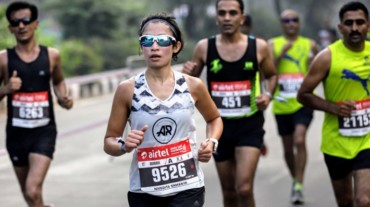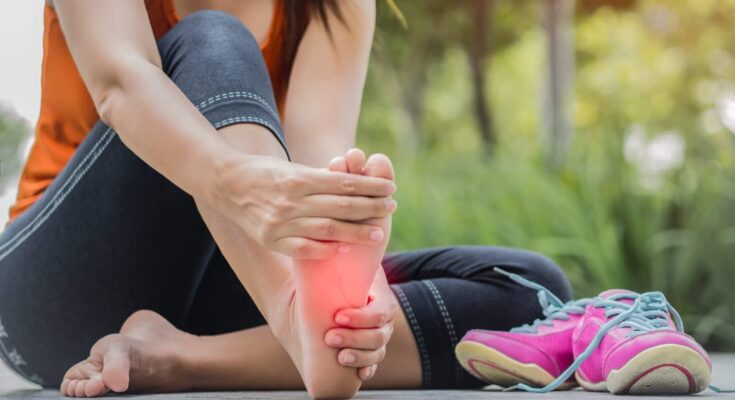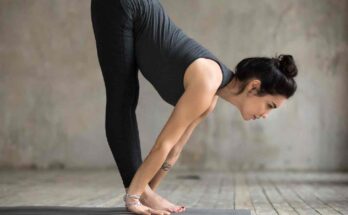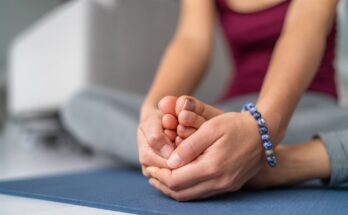Now that you have made up your mind to participate in the next marathon, it is time to quit being a couch potato and start training – HARD! A marathon is not your regular run, so it needs some preparation before you decide on finishing the run.
Your body can suffer a lot if you don’t train well. Many runners neglect to pay attention to their routines, but as every runner is aware that body will make noise when there is a problem. Your feet also need attention while training for a marathon. After all, your feet will be the only connecting point between your body and the ground (hopefully!), it is vital to make sure that your body is strong enough to avoid injuries and you will not suffer when you have to run more than 20 km in one go.

Health Shots reached out to Dr Rajat Chauhan, Student of Pain & Running (Life); Advocate of GOYA (Get Off Your Arse); Founder of La Ultra and Author, to know more about common running injuries people face while training for a marathon and what you can do about it.
Common injuries to look out for
Here are some of the common injuries you should look out for, according to Dr Rajat Chauhan.
1. Knee pain
One of the most common injuries people face during a run is knee pain. People who have been inactive for most of their life and suddenly decide to start running are the most vulnerable to knee pain.
2. Shin pain
Shin pain is also a very common injury that can occur when you try to build your distance too fast.
3. Heel pain
Medically known as plantar fasciitis, heel pain is another common injury people should look out for.
4. Lower back pain
When you land heavy, your back, knee, shin and heel – everything hurts. Hence, you should pay more attention to your running form and how you land.
5. Iliotibial band (ITB) syndrome
Iliotibial band or ITB is when the outside of the knee or the thigh pains. Stretching the ITB is the only way to strengthen the muscles and improve flexibility.
Tips to avoid injuries while training for a marathon
Show some love to your body by incorporating some simple yet effective ways that can help you avoid injuries. As Dr Chauhan says. “You need to build a solid base to get the mileage in, get your kilometres inf so that your base is formed and you don’t get injured easily.”

1. Start training at least a few months prior
Not training well enough can put you at risk of injuries by not training and rushing into a marathon. What you need is adequate time to prepare your body. Dr Chauhan says, “At least 2-3 months of practice is required for a 5-10 km run. 4 months should be enough for a half marathon (21 km) and 6 months for a full marathon (42 km).”
2. Choose your pace, don’t rush
“When you begin running, don’t do trail running because with every second step your ankle twists. Start with running on a road, soft ground, or a park,” recommends the expert.
“Too many people put too much effort when they begin. Begin your journey by running slow and smooth. You should be able to land smoothly. When you are running slowly and smoothly, you put less pressure on your body. You should be calm and relaxed when you run,” advises Dr Chauhan. “If you are trying to increase your distance too soon or run too fast, your body may not recover properly. this can increase your chances of getting injured.”
3. Strength training
Highlighting the importance of strength training, Dr Chauhan explains that most people do not strength train. “They fail to understand that running involves your muscles, joints and bones. Strength training reduces the chances of injuries to quite an extent.”
4. Stretches
“Stretches are important, but they do not need to be a one-hour-long activity. Do hips and lower back stretches – those are the bits that need to be stretched to avoid injuries,” explains Dr Chauhan. He further emphasized the importance of doing heel raises to strengthen the calf muscles. Toe curls are another, he suggests can help runners.
5. Nutrition
Tale as old as time – what you eat is what you are! Nutrition is equally as important for runners as it is for any other sport. Physiology comes into play here, says Dr Chauhan. “If you are not taking care of nutrition, then you are not taking care of strength, and your body is not recovering enough. Injuries will happen when you start doing longer marathons.” So make sure you eat a healthy and nutritious diet.
6. Sleep
Another vital thing that helps strengthen your body is sleep. Dr Chauhan explains that this is the time when your body recovers. “If you are not recovering well, your body will be tired from the previous day. A hormone called melatonin is released at night and is vital to recovery.”

7. Running shoes
Dr Chauhan suggests a simple yet effective strategy to choose the right footwear for a marathon. “Go to a brand, try a few pairs and see what fits well. Then go to another brand, do the same and then go to the third brand. Then shortlist the ones you like. Revisit those brands. The right shoe is the one that feels like the perfect fit.”
Another thing you should keep in mind is your “running shoes should be slightly bigger than the casual or regular shoes that you wear. Your shoes tend to expand when you keep running so there needs to be some space for it to grow.” It is crucial to choose the right shoes and socks for your safety and to avoid injuries.
8. Drink water, don’t overhydrate
“Water intake is important, but don’t overdo it,” says Dr Chauhan. He further explains that “overhydration can be more fatal than dehydration. Don’t drink a litre of water everywhere you stop during a marathon. Drink when you are thirsty.” He recommends 2-3 sips of water every time you feel thirsty to avoid overhydration.
Source link




